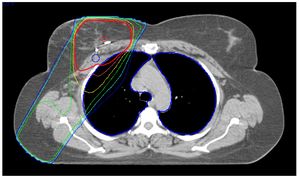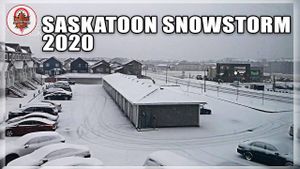Escalation of Conflict in Eastern DR Congo Results in High Casualty Count
Over 700 Dead and Thousands Injured Amid Intensified Fighting
Fighting continues to ravage the eastern Democratic Republic of Congo, leaving more than 700 dead and over 2,800 injured from January 26 to January 30, according to United Nations reports. UN Secretary-General spokesperson Stephane Dujarric provided these grim statistics during a press briefing, noting the staggering daily casualty figures as fighting between government forces and the AFC/M23 rebel coalition intensifies.
"The WHO and its partners conducted an assessment with the government... and report 700 people have been killed and 2,800 people injured," Dujarric stated, emphasizing the likelihood of increasing casualty numbers as the conflict rages on. The crisis has escalated rapidly, with Goma, the capital of North Kivu province, falling under the control of the M23 rebels on January 30.
The situation deteriorated significantly as Goma's control shifted to the rebels, who have made substantial territorial gains recently. The Congolese government has accused Rwanda of backing these rebels, though it has not confirmed the takeover of the city, acknowledging instead its precarious siege.
President Felix Tshisekedi has pledged "a rigorous and coordinated response" against the M23 coalition, which has already forced hundreds of local troops to surrender. Under-Secretary-General for Peace Operations Jean-Pierre Lacroix reported on January 31, emphasizing the continuing tension: "The situation remains tense" with sporadic firing events occurring, yet some calm was being observed.
Warnings from humanitarian experts highlight the grave conditions civilians face due to the chaos of the conflict. A report by the United Nations Office for the Coordination of Humanitarian Affairs (OCHA) detailed deteriorated access to clean drinking water. Many Goma residents have no choice but to turn to untreated water sources from Lake Kivu, increasing the risk of waterborne diseases.
"Without urgent action, OCHA cautions the risk of waterborne disease outbreaks will just continue to increase," said Dujarric, illustrating the dire need for immediate humanitarian assistance as residents cope with the violence.
The humanitarian impact of the fighting cannot be overstated; the situation remains volatile and unpredictable. Various humanitarian organizations are struggling to assess the full scope of the crisis due to widespread looting and disruptions to aid operations originating from Goma.
Experts have been vocal about the threat the conflict poses not only to peace but also to health, as overcrowding and poor sanitary conditions could give rise to major outbreaks. It is not just the casualties from the violence itself; hunger and sickness loom as enormous threats for civilians trapped amid the fighting.
The international community is closely watching the developments, with calls for enhanced diplomatic efforts to quell the violence and provide assistance to the region's beleaguered population. The conflict’s escalation serves as a reminder of the broader instability affecting regions within the Democratic Republic of Congo, where various militia groups historically vied for control.
Days prior to the current uptick, Goma was no stranger to violence. It has frequently borne the brunt of conflicts between government forces and various armed groups for years, resulting in repeated humanitarian crises.
The focus now lies on how the government can respond effectively to reclaim control and provide necessary protections for civilians, alongside international calls for stability and peace operations to address the needs of those suffering from this latest eruption of violence.
With over 700 confirmed dead, the question remains: how long can this humanitarian crisis continue before significant support is rendered? While officials express intentions of bolstered military response, the residents of Goma and the wider region await far-reaching action to protect their welfare and restore order.
Analysts warn against complacency, stressing the importance of immediate humanitarian access to prevent loss of additional lives and avert outbreaks of diseases. With the situation rapidly developing, all eyes will be on Goma, waiting for news of reconciliation or continued violence, bearing witness to yet another chapter of struggle within the DRC.
The consequences of this escalation pose severe long-term ramifications for the region’s stability, elevates issues such as accountability on implicated foreign actors, and places immense pressure on the humanitarian community's efforts to address and alleviate suffering. The need for vigilant monitoring and defined actions remains urgent as Goma and its residents confront these challenges directly.



